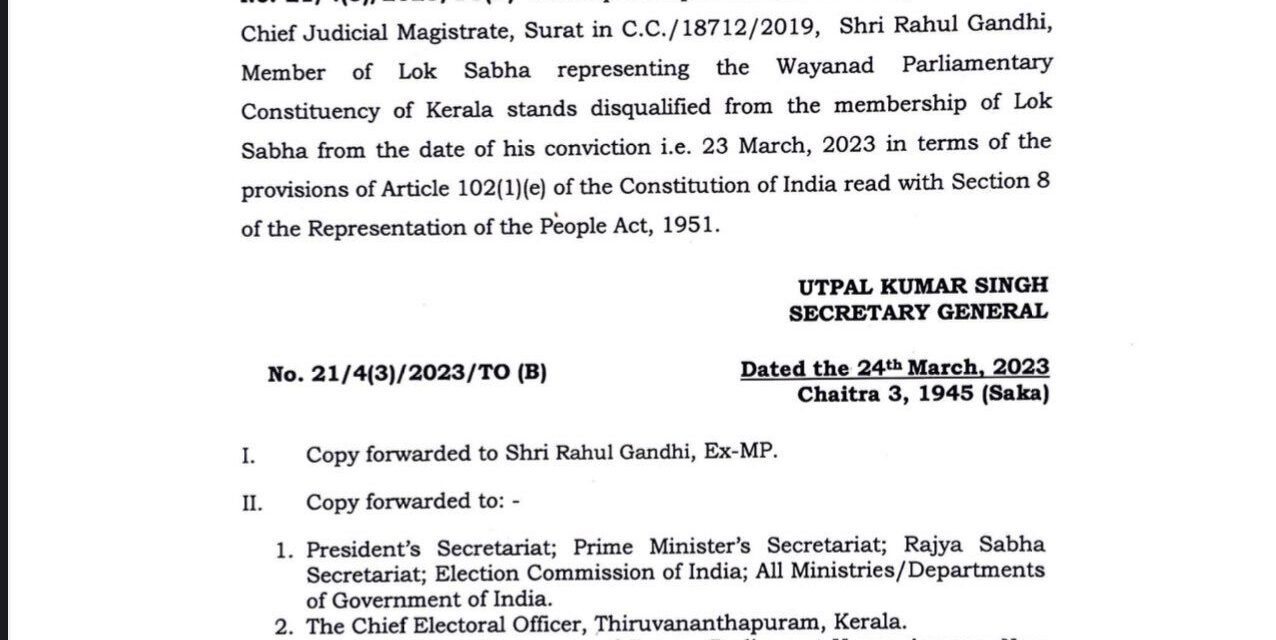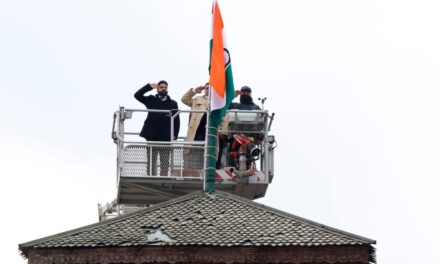![]()
Section 8(3) of the Representation of the People Act, 1951, says that the moment a member of parliament is convicted of any offence and sentenced for at least two years, she or he attracts disqualification.
New Delhi Mar 24: Congress leader Rahul Gandhi’s conviction and sentencing in a 2019 defamation case by a court in Gujarat has jeopardised his position as a member of parliament. While some experts have said the Lok Sabha MP from Kerala’s Wayanad stands “automatically” disqualified with the conviction, others say the action can be staved off if he manages to get the conviction overturned.
Though Mr Gandhi was granted bail and his sentence was suspended for 30 days to let him appeal the decision, the court’s order puts him at risk of automatic disqualification as a member of parliament under the law, some legal experts said.
Section 8(3) of the Representation of the People Act, 1951, says that the moment a member of parliament is convicted of any offence and sentenced for at least two years, she or he attracts disqualification.
According to experts, based on the Surat court order, the Lok Sabha Secretariat can disqualify Rahul Gandhi and declare his constituency vacant. The Election Commission will then announce a special election for the seat.
























